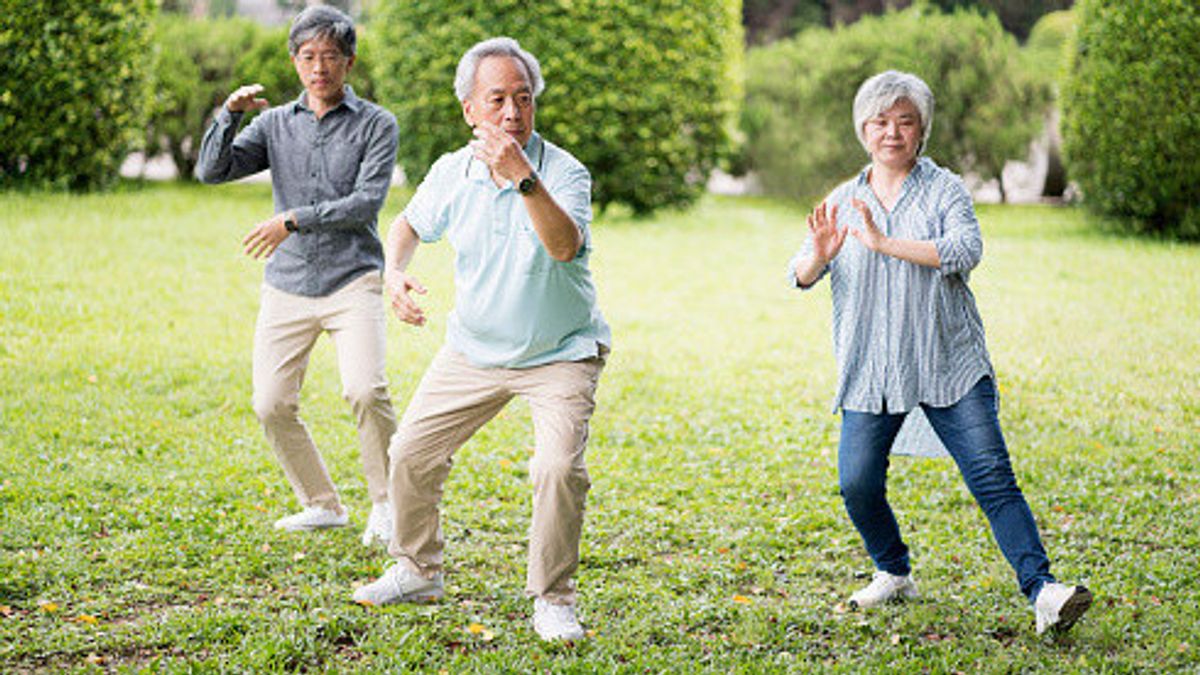Yogyakarta Yoga and meditation have been proven by research to help maintain mental and physical health. Including one type of meditation known as healing practices that emphasize aspects of gentle movement and spirituality, called Qi Gong.
Qi Gong's meditation combines breathing control and gentle movement. Not much different from tai chi, Qi Gong's meditation is believed to treat various health conditions, including high blood pressure, heart disease, diabetes, chronic fatigue, insomnia, and back pain.
Based on the origin of the word, Qi Gong means control of one's energy which combines two important concepts in traditional Chinese medicine. Qi means vital life force while gong means power or activation. Qi Gong's meditation is performed to process the energy of natural forces on the body to improve mental, physical, and spiritual health.
In the trust of the Chinese people, poor health is the result of clogged energy and flows through twelve meridians or body parts. By processing energy, Qi Gong is believed to improve health by letting Qi flow throughout the body.
There are two categories of Qi Gong, namely Qi Gong which is active or dynamic and Qi Gong is passive. Active Qi Gong is also known as a dong gong, which involves active movements with full awareness and breathing that increase Yang's energy. The active category in Qi Gong represents active energy, strength, and enthusiasm. Meanwhile, Yin describes passive energy, calmness, and gentleness.
The gentle movement in Qi Gong is carried out repeatedly and coordinated. The goal is to increase blood circulation, lymphatics, balance, muscle strength and flexibility, and greater awareness of the body.
In a passive Qi Gong, yin's energy becomes focused. Performed through body silence and mental development of Qi's energy. Due to the concept of meditative, thoughts and movements need to be in harmony. In fact, the mind actively works to process and move qi energy throughout the body.
In a 2020 study reported by Healthline, Friday, October 14, it was shown that Qi Gong significantly increased balance and style. A number of 95 participants who took part in the study were 51-96 years old and participated in Qi Gong's 12-week training.
Interestingly, Qi Gong also had a positive effect on young adults between 18-25 years old. The results of the training from 30 participants showed a 16.3 percent increase in stability after 8 weeks of training.
In addition to having a significant effect on physical posture, Qi Gong as a meditation person has been shown to reduce stress and anxiety symptoms. A calm and controlled breathing tells the body that there is no direct threat and activates the rest nervous system. Plus, Qi Gong's training also helps improve focus.
The English, Chinese, Japanese, Arabic, and French versions are automatically generated by the AI. So there may still be inaccuracies in translating, please always see Indonesian as our main language. (system supported by DigitalSiber.id)








